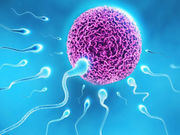Consumption of up to 14 units per week had no effect on fertility for women trying to conceive
FRIDAY, Sept. 2, 2016 (HealthDay News) — For women trying to conceive, moderate alcohol consumption has no impact of fertility, according to a study published online Aug. 30 in The BMJ.
Ellen M. Mikkelsen, M.P.H., Ph.D., from Aarhus University Hospital in Denmark, and colleagues conducted a prospective study involving 6,120 female Danish residents in a stable relationship with a male partner who were trying to conceive. Alcohol consumption was self-reported and categorized into standard servings per week.
The researchers found that during follow-up, 69 percent of participants achieved a pregnancy. The adjusted fecundability ratios for alcohol consumption of one to three, four to seven, eight to 13, and 14 or more servings per week compared with no alcohol consumption were 0.97 (95 percent confidence interval [CI], 0.91 to 1.03), 1.01 (95 percent CI, 0.93 to 1.10), 1.01 (95 percent CI, 0.87 to 1.16), and 0.82 (95 percent CI, 0.60 to 1.12). For women who consumed only wine (three or more servings), beer (three or more servings), or spirits (two or more servings), the adjusted fecundability ratios were 1.05 (95 percent CI, 0.91 to 1.21), 0.92 (95 percent CI, 0.65 to 1.29), and 0.85 (95 percent CI, 0.61 to 1.17), respectively, compared to no alcohol intake. The data did not differentiate between regular and binge drinking.
“Consumption of less than 14 servings of alcohol per week seemed to have no discernible effect on fertility,” the authors write. “No appreciable difference in fecundability was observed by level of consumption of beer and wine.”
Copyright © 2016 HealthDay. All rights reserved.








